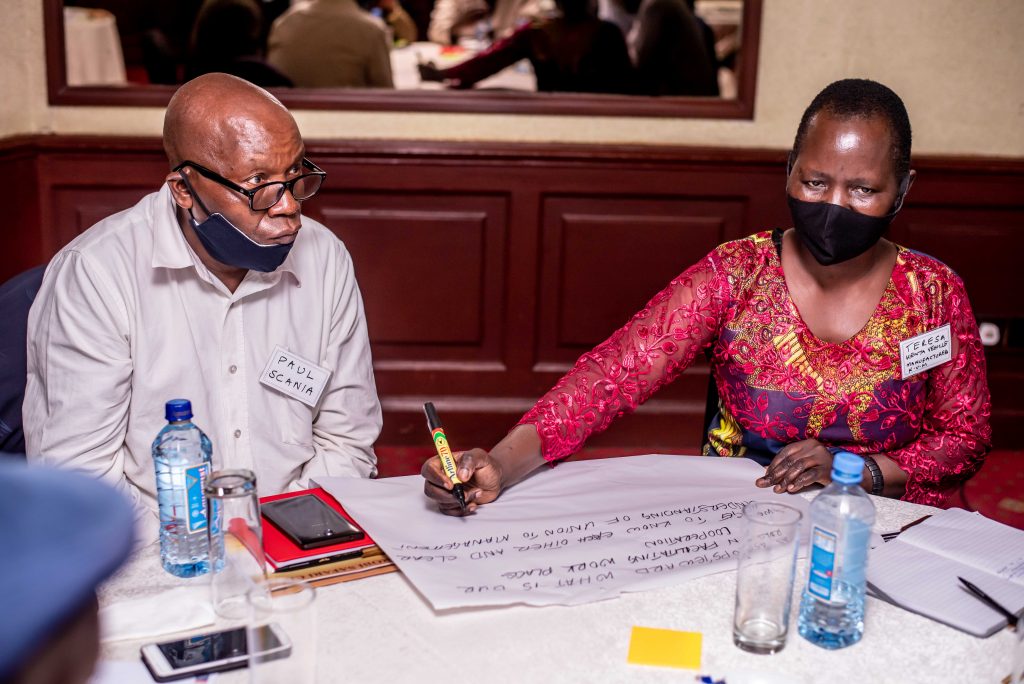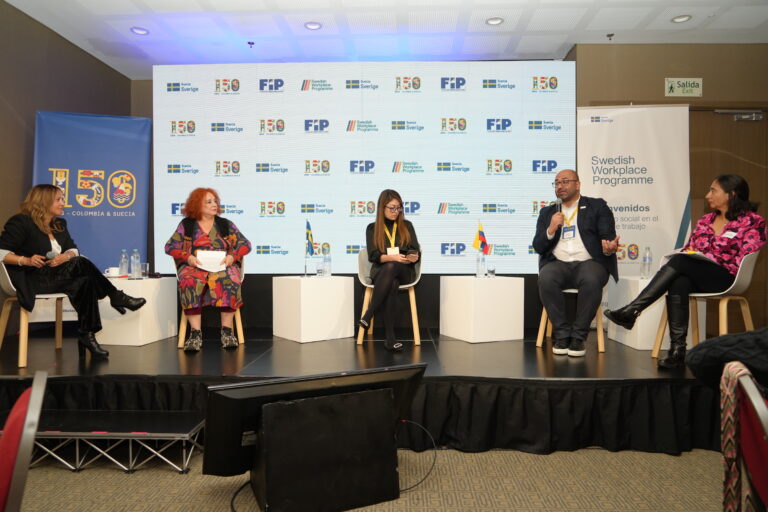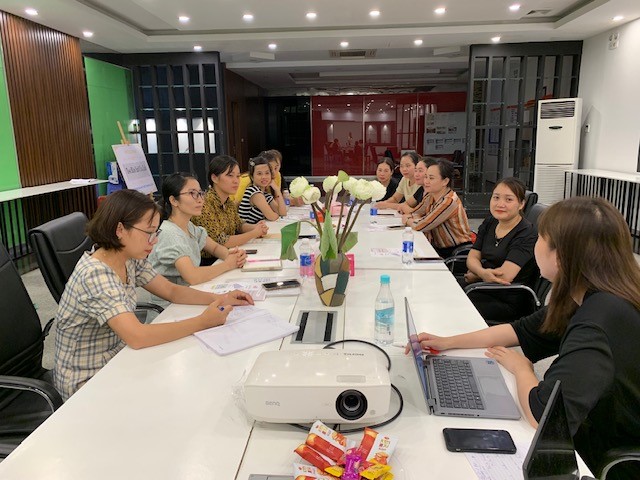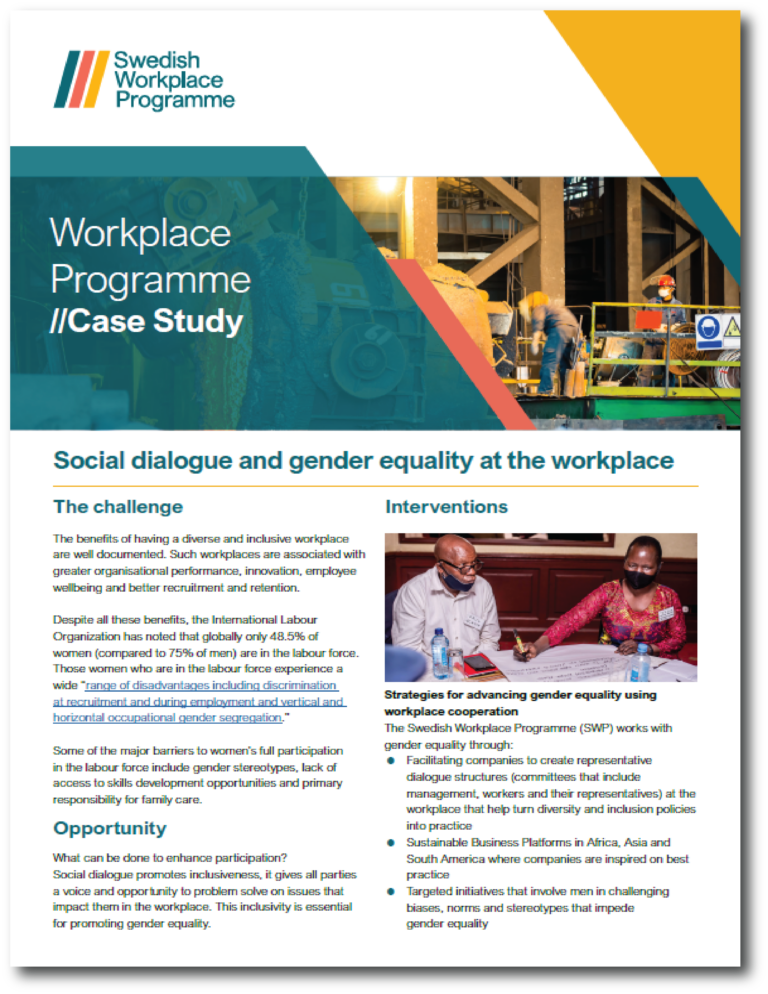The Swedish Workplace Programme (SWP) and its partnering companies and organisations believe the workplace is a powerful arena for change where we can choose to challenge gender biases, norms and stereotypes so that together we can create a more inclusive and equal world of work.
With our programme partners, we honoured International Women’s Day on the 8th of March by continuing to promote dialogue on female empowerment and leadership in our programme hubs. Yet, bringing the perspectives of women in the workplace to the forefront is about supporting dialogue on gender equality and diversity every day, not just one day of the year.
We are proud to share the initiatives by our partners that contribute to challenging gender norms and supporting gender equality, diversity and inclusion.
Atlas Copco in Colombia
View the video below about our insights on inclusion for equality and diversity together with our partnering company Atlas Copco Colombia.
SKF in Colombia
In Colombia, SWP partners with SKF Latin Trade and support its work in gender equality, which was highlighted on International Women’s Day. In SWP Colombia, we choose to challenge biases and stereotypes in the workplace and throughout broader society by generating inclusive dialogue about gender. Click to view the video below to learn more about the equality awareness initiatives by SKF Latin Trade that strengthen the dialogue.
Hitachi ABB Power Grids in Vietnam
In Vietnam, SWP partners with Hitachi-ABB Power Grids and together we supported an employee event on International Women’s Day titled, ‘Diversity + Inclusion = Great Innovation’. Ms. Duong Le, a specialist and researcher in diversity and inclusion at the Vietnam Business Coalition for Women’s Empowerment, spoke at the event and showed how diversity and inclusion lead to great innovation.
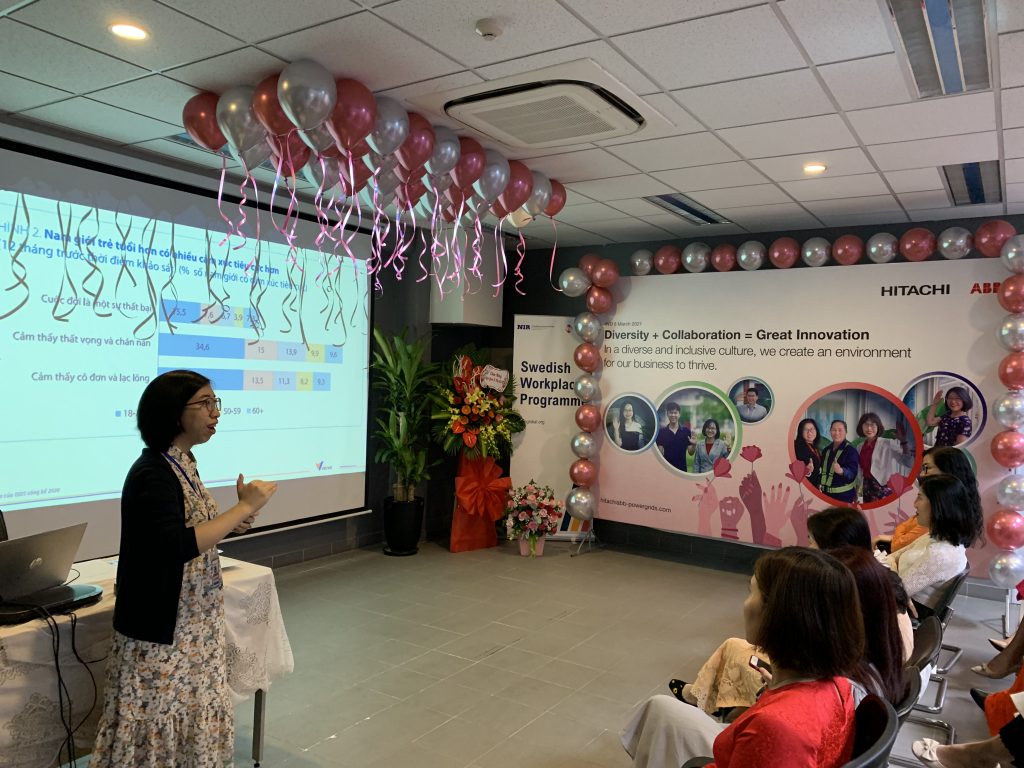
National Union of Metalworkers South Africa (NUMSA) in South Africa
In South Africa, SWP partners with the National Union of Metalworkers South Africa (NUMSA). Christine Olivier, International Officer at NUMSA, shared the following on gender equality:
“As we celebrated or rather commemorated International Women’s Day, it’s important to take a step back to see what we have achieved in terms of the emancipation of women in the workplace, society and in our trade unions. Although we have succeeded in the battle for equal pay for equal work, women still generally struggle to climb the ladder at their workplaces, and are overrepresented in low paid, contract and temporary jobs. With Industry 4.0, it becomes more and more difficult for women to be employed in the new ways of work. In most cases women are not technically trained and skilled in the new way of work.
Let me also take this opportunity to Salute all brave Women out there, who continuously fight for the Emancipation of Women, an end to the exploitation of Women, an end to Gender Based Violence and for Women to take their rightful place in Society, the Workplace and in their Trade Unions.”
Christine Olivier, International Officer for National Union of Metalworkers South Africa (NUMSA)
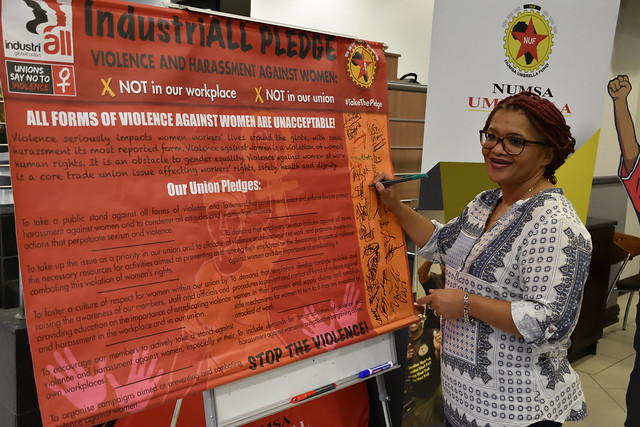
Amalgamated Union of Kenyan Metal Workers
In Kenya, SWP partners with Amalgamated Union of Kenyan Metal Workers. Rose Omamo, the General Secretary of Amalgamated Union of Kenyan Metal Workers, shared the following on how unions support workplace cooperation.
“Women will achieve an equal future at the workplace once we all work together to ensure the workplace is free from sexual harassment and gender bias that is manifesting in many disturbing ways.
I choose to challenge the predominance of men in leadership. Women in leadership positions are delivering, they are performing exceedingly well, and we all need to change and embrace women’s leadership.
I look forward to leading quality CBA engagements, ensuring more training opportunities for shop stewards and ensuring the realization of social dialogue between workers-management, workers-union, management-union and the union and all social dialogue partners.”
Rose Omamo, General Secretary, the Amalgamated Union of Kenyan Metal Workers
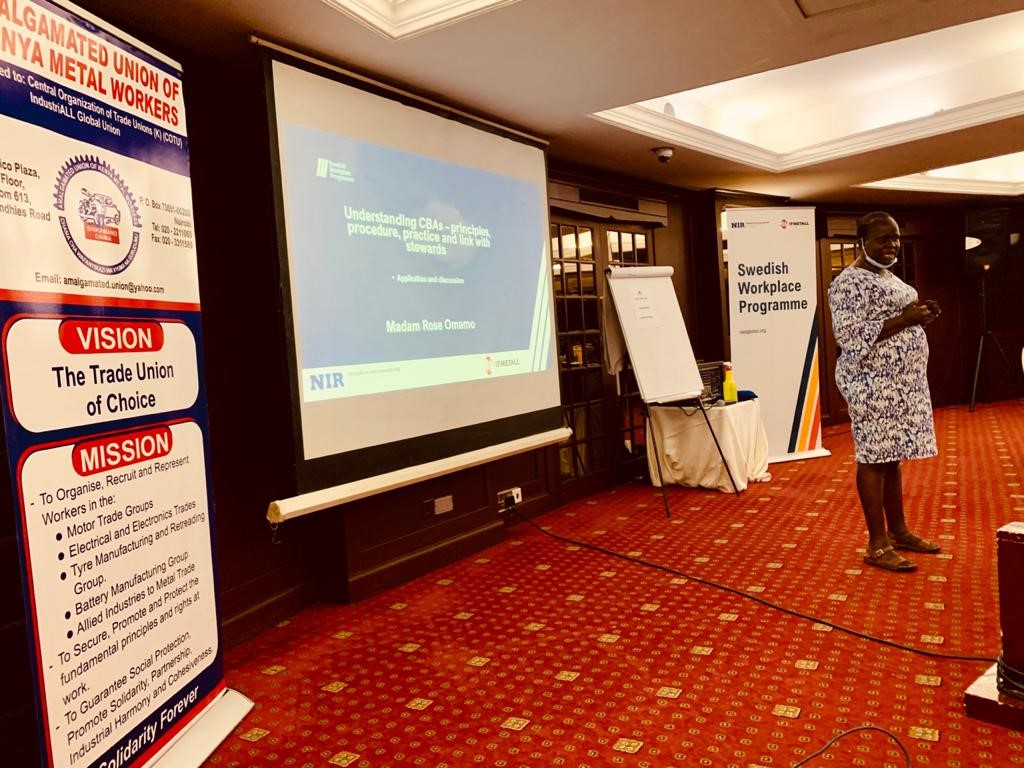
Kenya Vehicle Manufacturers
In Kenya, SWP and the Amalgamated Union of Kenyan Metal Workers have initiated a programme for shop stewards from the automobile sector to support union representatives in conducting effective workplace dialogue. A participant in the programme shared her view on women in the workforce and stated the following:
“My thoughts on women in leadership and especially as catalysts of workers’ rights. I believe women have something unique to offer in leadership and that is their humane nature. I work in a male dominated industry and was nominated and elected by both male and female colleagues which means they saw that I had value to offer them. This trust gave me confidence to be a leader, which was a role I had not expected to be in. Apart from this position, I also mentor younger colleagues and especially the women joining this industry. That is because I believe we have big dreams as women. I encourage them to be confident in their work and to seek continuous learning from their colleagues to grow in the industry.
I chose to challenge gender bias at the workplace. Everyone should respect the authority of all professionals whether male or female, and especially in male dominated industries. What has helped me as a leader is to understand my working environment (in terms of how to influence) and building good relationships with my colleagues which has given me influence as I have earned their respect”.
Teresia Okumu, Shop Steward- Kenya Vehicle Manufacturers
